Review| ‘Hacksaw Ridge’, Pacifism, and Mel Gibson’s Surrender
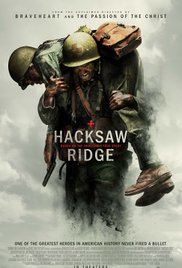 With the mere mention of a new creative endeavor by Mel Gibson, the public memory once again recalls the man’s actions ten years ago as he drunkenly accosted police with anti-Semitic and misogynistic language. It was an ugly scene and one that did end up making Mel Gibson a pariah for several years. It seemed as if most of his output was largely straight to video for a time and his mainstream films didn’t find their way into box office success. And, then, 2016 happened and Gibson found himself starring in one and directing another highly acclaimed film: Blood Father and Hacksaw Ridge, respectively.
With the mere mention of a new creative endeavor by Mel Gibson, the public memory once again recalls the man’s actions ten years ago as he drunkenly accosted police with anti-Semitic and misogynistic language. It was an ugly scene and one that did end up making Mel Gibson a pariah for several years. It seemed as if most of his output was largely straight to video for a time and his mainstream films didn’t find their way into box office success. And, then, 2016 happened and Gibson found himself starring in one and directing another highly acclaimed film: Blood Father and Hacksaw Ridge, respectively.
The question on the lips of several critics in the wake of this is whether or not there is a space in which public forgiveness can be offered. Can we, as a society, allow for Gibson to stop “hugging the cactus” as Robert Downey Jr. so famously put it? And how does relating to and enjoying a film, or other endeavors, by Gibson play into that public act? Are we condoning his actions by partaking in their personal work or are we offering a kind of grace to them?
This is a question that America has had to ask throughout Hollywood’s history. Some of the most recent examples span from Roman Polanski to Woody Allen to Bill Cosby and, most recently, Nate Parker. Even within my own preferred genre of horror, this question has reared its head with director, Victor Salva, in the midst of an upcoming third film in the Jeepers Creepers series. To only complicate the matter more, I think a case could potentially be made for a disparity in how the public consciousness has either forgiven and/or forgotten the acts of white actors and directors more quickly and easily than minority actors and directors. Roman Polanski doesn’t have near the consistent public onslaught of denouncement that Victor Salva has even though their crimes were very similar.
One element that perhaps places Gibson in a peculiar position for some form of public forgiveness to be shown to him is that he has been very vocal about what he has done and how he was wrong to do it. Just this last week on The Late Show with Stephen Colbert, he spoke about how he tried to handle the public and professional criticism over the last ten years. He said he took the beating and tried not to become angry in response to it because he knew they were right. He had no leg to stand on. In a sense, one could call this surrender to the verdict of public outrage. The question of whether or not Gibson actually served enough physical time and legal punishment for his actions is another question still. However, I think considering his public attitude toward the Jewish community, specifically, and the public, broadly, in the wake of his arrest, maybe Gibson has served his time socially and professionally. I, however, am not in a position where I can make that call.
It is this seeming surrender Gibson has publicly shown that perhaps makes Hacksaw Ridge such an interesting affair. The film tells the story of Desmond Doss (played by Andrew Garfield in all of his “aww shucks”-ness), one of three conscientious objectors who have received the Medal of Honor, as he enlists in the army during World War II and ends up in the Battle of Okinawa even though his Seventh Day Adventist faith dissuades him from even touching a gun. This premise on the surface seems almost universally compelling, especially within the history of cinematic war. Pacifism practically enacted in the midst of the wrath of human war? It almost becomes too good of an example for those, like me, who claim the title and principles of broad pacifism—much like any other position one could hold, pacifists are not monolithic in how they live out their conscience. Pacifism is, above all, surrender to God’s justice and to the preservation of the life of others and in that order.
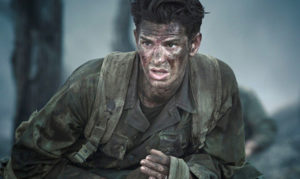 In one way, this seems like the perfect subject for Mel Gibson to take on in his first directorial effort in ten years. Perhaps he consciously or unconsciously attempted to make a public, artistic declaration of surrender before God and before man in the wake of the war that is his past. Or perhaps this is merely a justification by a critic who has always appreciated the acting and directorial work of Gibson. I will let you decide that. However, the concept alone makes for a stimulating connection point between Gibson’s real life and his cinematic life. But does the film ultimately succeed in telling this specific story in a way that actually gives assent to pacifism? Is it possible to make a war film that is actually anti-war and anti-violence?
In one way, this seems like the perfect subject for Mel Gibson to take on in his first directorial effort in ten years. Perhaps he consciously or unconsciously attempted to make a public, artistic declaration of surrender before God and before man in the wake of the war that is his past. Or perhaps this is merely a justification by a critic who has always appreciated the acting and directorial work of Gibson. I will let you decide that. However, the concept alone makes for a stimulating connection point between Gibson’s real life and his cinematic life. But does the film ultimately succeed in telling this specific story in a way that actually gives assent to pacifism? Is it possible to make a war film that is actually anti-war and anti-violence?
It is very hard to say yes to that question. The narrative of war films usually finds its resolution in some form of victory. Even if you muddy the lines between good and bad and make film’s characters’ motivations ambiguous, war as a concept still maintains primacy of place if the resolution of the film is found in the victory of a war or battle. If Doss’ pacifism is surrender like I have described, then a film that gives assent to pacifism probably needs to shun the victory narrative, because pacifism is not victory, but voluntary defeat of human justice and control. Pacifism is foolishness to the powers that be. It is usually seen as impractical and easily defeated by arguments about Hitler or home invasion. Most pacifists understand this about their beliefs; some even embrace the foolishness.
Yet Hacksaw Ridge does find its narrative resolution in the victory of Americans over their Japanese enemies in the battle at Hacksaw Ridge. In a couple of rare moments within the film, the Japanese are given some humanity, but not enough to overcome their general facelessness as “the enemy.” Doss’ pacifistic stance could be called into question in the moments where he kicks grenades away from his fellow soldiers towards the Japanese soldiers as well. By the end of the movie it is hard to dissect whose righteousness is really on display, Doss’ conscience or America’s eventual victory over the Japanese. Doss’ lived out principles of non-violence become muddled within the typical triumphalist narratives of American war cinema.
It does not help either that Gibson has always had proclivities towards showing very violent images as a means of displaying how humanity is often as brutal as nature in how it is “red in tooth and claw.” Being intentional and meaningful in showcasing violence on celluloid is a difficult feat without falling into gratuity and shock. I don’t think Hacksaw Ridge was able to ultimately tout it’s use of violent imagery was consistently meaningful and added to the narrative drive of the film, but it is far from being the worst example of badly conceived cinematic violence. Nonetheless, maybe Gibson could have used more time to consider how the imagery could have better served the story that he was trying to tell.
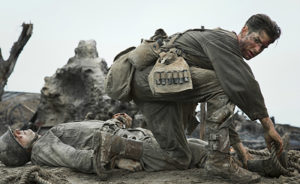 Hacksaw Ridge, while still being technically impressive and a return to form for Gibson, ultimately becomes not much more than a really solid war film. And normally that would be enough except Gibson had the opportunity to transcend the genre and make something that could challenge and prod at the human propensity for war and explore the dimensions of someone like Doss who chose a different path—a foolish, seemingly impractical path—based on his faith in God.
Hacksaw Ridge, while still being technically impressive and a return to form for Gibson, ultimately becomes not much more than a really solid war film. And normally that would be enough except Gibson had the opportunity to transcend the genre and make something that could challenge and prod at the human propensity for war and explore the dimensions of someone like Doss who chose a different path—a foolish, seemingly impractical path—based on his faith in God.
It is hard to say what public forgiveness for Mel Gibson would actually look like. It’s even harder to imagine how that forgiveness could potentially be enacted through film. Hacksaw Ridge had the potential to explore the nature of surrender in a world that values only victory and being on the right side of history—something that the real Desmond Doss incarnated, but somewhere along the way the film’s principles were compromised. If Gibson has embraced this same humble surrender in his own life, it doesn’t seem to have been translated into his cinematic legacy quite yet, but perhaps this could be considered a step in the right direction.


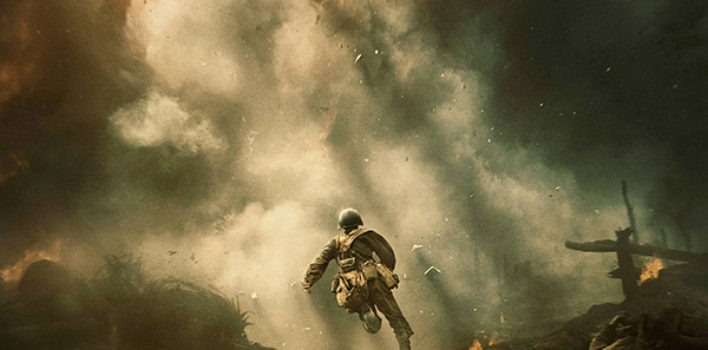

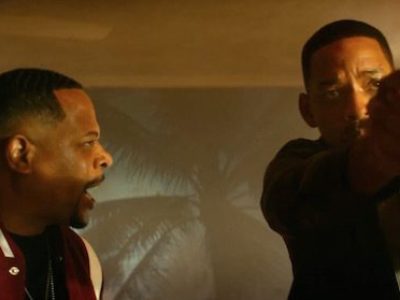



Pingback: #115 – Hacksaw Ridge and More Than Pacifism | Reel World Theology